227 start with T start with T

David Chinitz argues that Eliot was productively engaged with popular culture in some form at every stage of his career, and that his response to it, as expressed in his poetry, plays, and essays, was ambivalent rather than hostile. He shows that American jazz, for example, was a major influence on Eliot's poetry during its maturation. He discusses Eliot's surprisingly persistent interest in popular culture both in such famous works as The Waste Land and in such lesser-known pieces as Sweeney Agonistes. And he traces Eliot's long, quixotic struggle to close the widening gap between high art and popular culture through a new type of public art: contemporary popular verse drama.
What results is a work that will persuade adherents and detractors alike to return to Eliot and find in him a writer who liked a good show, a good thriller, and a good tune, as well as a "great" poem.

Winner, Arab American National Museum's 2015 George Ellenbogen Poetry Award
Tahrir Suite is a book-length poem that contemplates immigration, homeland, and diaspora in the twenty-first century. The poem, inspired by recent events in Egypt, cycles through the journey of two Egyptians moving across borders, languages, cultures, landscapes, and political systems while their life in the U.S. diaspora evolves and their home country undergoes revolutionary change.
Written from a perspective and about a place that is virtually unexplored in contemporary American poetry, Tahrir Suite works to capture the complicated essence of what it means to be from a specific place that is experiencing such radical change and how our understandings of “home” and “place” constantly evolve. Tahrir Suite is a musical meditation on what it means to be a global citizen in contemporary times.

Amid the din of Russia’s patriotic sentiments and Instagram instants, is there any room left for the voice of a poet? Despite the many entertainments and distractions of modern life, Anzhelina Polonskaya’s spare but cutting poems in Take Me to Stavanger declare a wholehearted “Yes.” This bilingual Russian-English volume makes a refuge for the poet and her readers, plumbing the depths of contemporary melancholy and ennui. Beautifully crafted idiosyncratic dissections of a strong individual who refuses to go along with the currents of popular culture or political jingoism invite readers to slow down and pay attention.

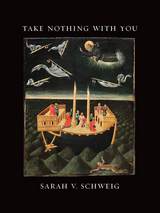
These poems operate on the notion that the lyric can be discovered in scattered headlines, office-wide emails, road signs—the detritus of the everyday. But a poem doesn’t stop at found fragments; it creates something from them. These poems question and re-question what can be truthfully said, rediscovering the lyric in the very process of thinking, revising, and re-envisioning.
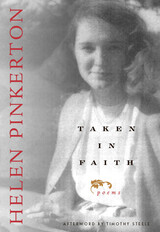
In 1967, Yvor Winters wrote of Helen Pinkerton, “she is a master of poetic style and of her material. No poet in English writes with more authority.” Unfortunately, in 1967 mastery of poetic style was not, by and large, considered a virtue, and Pinkerton’s finely crafted poems were neglected in favor of more improvisational and flashier talents. Though her work won the attention and praise of serious readers, who tracked her poems as they appeared in such journals as The Paris Review, The Sewanee Review, and The Southern Review, her verse has never been available in a trade book. Taken in Faith remedies that situation, bringing Pinkerton’s remarkable poems to a general audience for the first time.
Even her very earliest works embody a rare depth and seriousness. Primarily lyrical and devotional, they always touch on larger issues of human struggle and conduct. More recent poems, concerned in part with history, exhibit a stylistic as well as a thematic shift, moving away from the rhymed forms of her devotional works into a blank verse marked by a quiet flexibility and contemplative grace.
Like Virginia Adair, another poet who waited long for proper recognition, Pinkerton speaks as a woman who has lived fully and observed acutely and who has set the life and observations down in memorable verse. Taken in Faith represents a half-century of her poetic efforts.
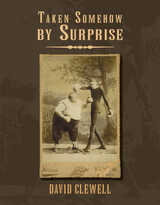
David Clewell’s spirited poems cut through the noise we too often accommodate in our daily lives. Breath by surprising breath, this poet takes us into chambers of the heart that have never been mapped quite this way before. By turns raucous and strangely soothing, narrative and lyrical, Clewell traffics in unlikely and compelling details of our mostly discernible world: a school custodian’s role in the burgeoning Space Race, the vastness of abandoned missile silos, the first lawn flamingos, and the living fossil still using a typewriter.
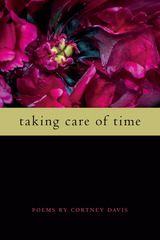
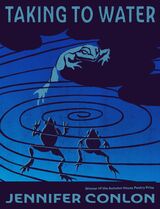
A tender imagining and devastating reckoning, Jennifer Conlon’s debut presents a poetry collection of gender questioning, concerned with the survival of trans and nonbinary kids who live in places that do not allow them to thrive. The speaker of these poems wrestles with and envisions a life beyond their traumatic childhood as a genderqueer child in a small Southern Bible Belt town. Through retelling and reinterpreting moments of sexual shame and religious oppression, while navigating impossible expectations from a gender-binary society, Conlon shows readers that queerness and the natural world are inseparable. In their poems, Conlon comes to reject oppressive patriarchal figures, turning their gaze toward the natural world that catalyzes dreams of possibility, transformation, and safety—wasps protect them, an oak tree contains a new god, and flathead catfish guide them to a newly imagined body. Through thick North Carolina woods, Conlon searches for a language to celebrate queerness, finding it in ponds, hillsides, and within themselves.
Taking to Water was selected by Carl Phillips as the winner of the 2022 Autumn House Poetry Prize.
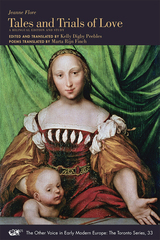

Tales of Dionysus is the first English verse translation of one of the most extraordinary poems of the Greek literary tradition, the Dionysiaca of Nonnus of Panopolis. By any standard, the Dionysiaca is a formidable work. It is by far the longest poem surviving from the classical world, a massive mythological epic stretching to over 20,000 lines, written in the tradition of Homer, using Homer’s verse, Homer’s language, his narrative turns and motifs, and invoking his ancient Muses. But it is also the last ancient epic to follow a Homeric model, composed so late in fact that it stands as close in time to the Renaissance as it does to archaic Greece. Like its titular hero, Dionysus, with his fluidity of forms, names, and divine incarnations, the poem itself is continually shifting shape. Out of its formal epic frame spills a tumult of ancient literary types: tragedy, elegy, didactic, panegyric, pastoral idyll, and the novel are all parts of this gigantic enterprise, each genre coming to the fore one after the other.
Tales of Dionysus brings together forty-two translators from a wide range of backgrounds, with different experiences and different potential relationships to the text of Nonnus’ poem. All work in their own styles and with their own individual approaches to the poem, to translation, and to poetic form. This variety turns Tales of Dionysus into a showcase of the multiple possibilities open to classical translation in the contemporary world.

Translated with enchanting poetic imagery, the poem relates the adventures of Prince Samuttakote and his princess as they tour the heavenly realms with a magic sword. The two are separated after the sword is stolen but are reunited after further adventures. Upon ascending the throne, they teach the moral code of precepts and how all life is affected by it. The poem is important for its depiction of the amusements and daily life of seventeenth-century Thailand and for its use of classic Thai poetic devices.
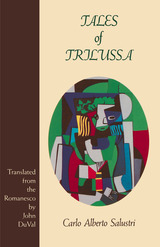

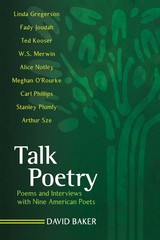
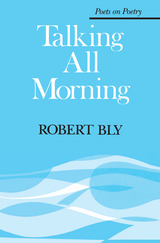

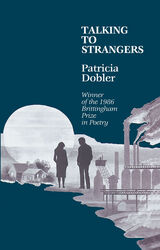
In her first book of poems, Patricia Dobler records her memories of the Ohio mill town where she grew up in the 1950s. but the poems range over time and the memories of others, as well: her immigrant Hungarian grandparents, her parent's tensions during hard times (”Years spilled on the kitchen table, / picked over like beans or old bills”), the dangers, losses, and occasional triumphs of hard-working men and women.

The harsh realities of being migrant and immigrant, being birthright and oppressed, are as hard-pressed as the plancha move to the body. Each poem in Tapping Out is a “freestyle movement” of language and complexity put on full display, under the bright lights and roars of survival. Comer’s splendid and barbed, Detroit style of language melts the masks with searing words.
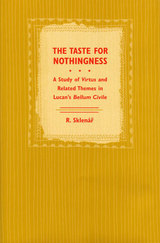
The Taste for Nothingness traces Lucan's own analytical method by showing how virtus and related concepts operate--or rather, fail to operate--in Lucan's appropriations and distortions of the traditional epic-battle narrative; in the philosophical commitment of Cato the Younger; and in the personalities of the two antagonists, Pompey and Caesar. Much recent scholarship has reached a consensus that Lucan's literary method is mimetic, that his belief in a chaotic cosmos produces a poetics of chaos. While accepting many of the recent findings about Lucan's view of language and the universe, The Taste for Nothingness also allows an even bolder Lucan to emerge: a committed aesthete who regards art as the only realm in which order is possible.
Robert Sklenár is Visiting Assistant Professor of Classical Studies, Tulane University.
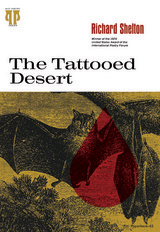
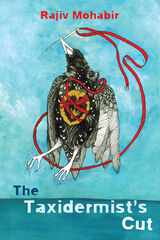

Achilles—warrior and hero—by the protocols of Western culture, should never cry. And yet Homeric epic is full of his tears and those of his companions at Troy. This path-blazing study by Hélène Monsacré shows how later ideals of stoically inexpressive manhood run contrary to the poetic vision presented in the Iliad and Odyssey. The epic protagonists, as larger-than-life figures who transcend gender categories, are precisely the men most likely to weep.
Monsacré pursues the paradox of the tearful fighter through a series of lucid and detailed close readings, and examines all aspects of the interactions between men and women in the Homeric poems. Her illuminating analysis, first published in French in 1984, remains bold, fresh, and compelling for anyone touched—like Achilles—by a world of grief.
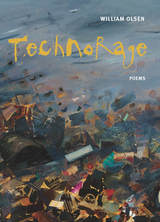
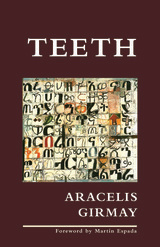
LOVE,
you be the reason why
we swagger & jive,
lift the guitar, & pick up the axe.
when it is i tilt my hat to the side,
wearing colors & perfumes, it's cause, love,
you did it to me. oh,
you do sure turn my tongue to fiddle,
& make the salt taste sweet. man,
i don't need a rooster, or peacock even,
to help me spend my time, nope,
just you, love, right & solid as
a line.
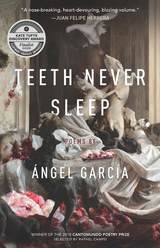
Finalist, 2019 PEN Open Book Award
Winner, 2019 American Book Award, Before Columbus Foundation
Drawing on folklore and fantasy, childhood memory and hallucination, and marked by a tone of piercing divulgence, Teeth Never Sleep nimbly negotiates the split consciousness a culture of dominance requires of men (especially men of color), highlighting the fissures in selfhood created by the pressure to seek submission over intimacy while still wanting desperately to be loved, and tracing the contorted route by which emotional pain finds expression in violence. “The night my girlfriend tells my mother I beat her, / I feel betrayed. This was a secret we kept between us. / That night, I was no longer my mother’s loving son,” the speaker in one poem confesses, and later “I never wanted to be this kind of animal.”
And yet, through the lens of Ángel García’s sharp imagining, men frequently appear as beasts (sometimes literally)—as hybrid beings both tender and brutal—that he steadfastly refuses to let off the hook as he obsessively catalogs the origins of toxic masculinity (the first time I made my mother cry, the first time I pitied my father, the first time I saw a girl bleed) and its quiet, lasting effects: “Still a part of me believes a / man shouldn’t cry in front of a woman, even in the dark.”
In a culture of weaponized masculinity, the poems in Teeth Never Sleep make a doorway of a wound, inviting readers to walk through and sit down inside the raw pain they harbor to meditate on two central, urgent questions: what it means to be a man and how, as a man, to love.
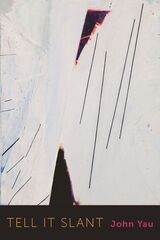
Emily Dickinson begins one of her poems with the oft-quoted line, “Tell all the truth but tell it slant." For Asian Americans, the word “slant” can be heard and read two ways, as both a racializing and an obscuring term. It is this sense of doubleness—culminating in the instability of language and an untrustworthy narrator—that shapes, informs, and inflects the poems in John Yau’s new collection, all of which focus on the questions of who is speaking and who is being spoken for and to. Made up of eight sections, each exploring the idea of address—as place, as person, as memory, and as event —Tell It Slant does as Dickinson commands, but with a further twist. Yau summons spirits who help the author “tell all the truth,” among whom are reimagined traces of poets, movie stars, and science fiction writers, including Charles Baudelaire, Thomas de Quincey, Philip K. Dick, Li Shangyin, and Elsa Lanchester.
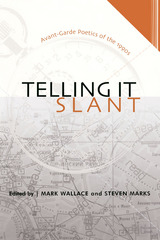
The finest essays from the newest generation of critics and poet-critics are gathered together in this volume documenting the growth in readership and awareness of avant-garde poetries.
This collection demonstrates the breadth and openness of the field of avant-garde poetry by introducing a wide range of work in poetics, theory, and criticism from emerging writers. Examining the directions innovative poetry has taken since the emergence and success of the Language movement, the essays discuss new forms and the reorientation of older forms of poetry in order to embody present and ongoing involvements. The essays center around four themes: the relation between poetics and contemporary cultural issues; new directions for avant-garde practices; in-depth explorations of current poets and their predecessors; and innovative approaches to the essay form or individual poetics.
Diverging from the traditional, linear argumentative style of academic criticism, many of the essays in this collection instead find critical forms more subtly related to poetry. Viewed as a whole, the essays return to a number of shared issues, namely poetic form and the production of present-day poetry. While focusing on North American poetry, the collection does reference the larger world of contemporary poetics, including potential biases and omissions based on race and ethnicity.
This is cutting-edge criticism at its finest, essential reading for students and scholars of avant-garde poetry, of interest to anyone interested in contemporary American literature and poetry.
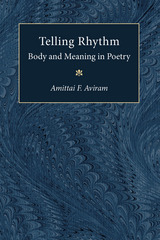
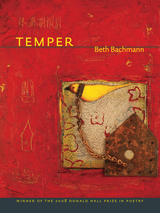

The Northern Song (960–1126) was one of the most transformative periods in Chinese literary history, characterized by the emergence of printing and an ensuing proliferation of books. The poet Huang Tingjian (1045–1105), writing at the height of this period, both defined and was defined by these changes. The first focused study on the cultural consequences of printing in Northern Song China, this book examines how the nascent print culture shaped the poetic theory and practice of Huang Tingjian and the Jiangxi School of Poetry he founded.
Author Yugen Wang argues that at the core of Huang and the Jiangxi School’s search for poetic methods was their desire to find a new way of reading and writing that could effectively address the changed literary landscape of the eleventh century. Wang chronicles the historical and cultural negotiation Huang and his colleagues were conducting as they responded to the new book culture, and opens new ground for investigating the literary interpretive and hermeneutical effects of printing. This book should be of interest not only to scholars and readers of classical Chinese poetry but to anyone concerned with how the material interacts with the intellectual and how technology has influenced our conception and practice of reading and writing throughout history.
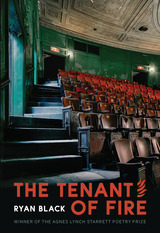
The Tenant of Fire is about Queens, NY—its history, public and personal, real and imagined. Many of the people who populate this book—Irish Catholics, Italian-Americans—were once considered ethnic but now fall wholly under the banner of white. And from their anxieties a man like Donald Trump emerges. Born and raised in Queens, Trump is both the product and purveyor of a localized nativist politic.
The young white speaker of these poems works to record his parents’ and neighbors’, both white and of color, and his own attempts at navigating a shifting landscape. In poems on the homecoming of Vietnam vets, or the aftermath of Hurricane Sandy, or the firebombing of Malcolm X’s house, The Tenant of Fire explores how and why the plurality of a place like Queens, where now nearly two hundred languages are spoken, is viewed as a threat to national security.
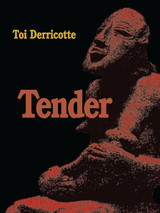


"Again and again in Christina Hutchins’s exquisite Tender the Maker, poems startle us into awareness of the overlooked, the nearly always invisible (such as a library’s unused dictionary), and the marvelous, those aspects of life that come under the rubric of ‘mystery,’ in all senses of the word. Hutchins combines a pitch-perfect and precise lyricism with a postmodern sensibility of language’s materiality.”
—Cynthia Hogue, judge for the 2015 May Swenson Poetry Award
"An elegantly crafted, dense work that invites readers to travel on spiritual, philosophical, and historical journeys."
—Kirkus Reviews
"Tender the Maker revisits the age-old comparison between poet and deity, highlighting its blind spots, namely the times when creating also means losing, destroying, forgetting. . . . Each poem becomes a map where time and space intersect and unearth connections that help us confront the weight of history, whether our own or that of others."
—Fjords Review
"[T]hroughout the book, Hutchins guides me into her patient, fragile, complex vision. . . . Both the depth and the precision of Hutchins’s work arise from her exact attention to the 'motion-in-relation' of herself as an artist, which is also attention to the tools of her work and to her imagination’s duty to honor the seen and the not seen."
—Beloit Poetry Journal
The May Swenson Poetry Award is an annual competition named for May Swenson, one of America’s most provocative and vital writers. During her long career, Swenson was loved and praised by writers from virtually every school of American poetry. She left a legacy of fifty years of writing when she died in 1989. She is buried in her hometown of Logan, Utah.

Tennysonian Love was first published in 1969. Minnesota Archive Editions uses digital technology to make long-unavailable books once again accessible, and are published unaltered from the original University of Minnesota Press editions.
In the century or so since Alfred Tennyson's poetry reached the height of its popularity and critical acclaim, the pendulum of criticism has swung wide in opposite directions. From the earlier idolatry to the later ridicule, that pendulum has now settled into a position of qualified and selective praise from which a more thoughtful consideration of the poet is possible. Consequently, as this critical study suggests, new values and dimensions are recognizable in his work.
Professor Joseph, concentrating on the theme of love but involving in his argument other facets of Tennyson's achievement, demonstrates the thesis that the poet moved as in a "strange diagonal." This phrase used as the subtitle of the book comes from Tennyson's poem The Princess in which the narrator "moved as in a strange diagonal / And maybe neither pleased myself nor them."
As the author shows, Tennyson throughout his work moved between a Platonic conception of love in which the highest kind of spiritual love has disencumbered itself of sense and a Neoplatonic ("Dantesque") one in which sense and soul tend to merge. In coming to terms with the nineteenth-century form of this divided Western heritage, the pietism of the evangelical revival on the one hand and the idealized eroticism of his Romantic predecessors on the other, Tennyson became the exemplary poet of Victorian love. No other Victorian poet, Professor Joseph concludes, exhibits quite his representative and successful blending of these clashing strains. For while moving between the alternate traditions of Western love, Tennyson was able to forge a large body of highly disciplined, beautifully wrought, and far-ranging verse.

With authority and sensitivity Plotkin traces the close relationship between Hopkins’s poetry and the theories of language suggested in his Journals and expounded by Victorian philologists such as Max Müller and George Marsh.
Plotkin seeks to determine what changed Hopkins’s perception of language between the writing of such early poems as "The Habit of Perfection" and "Nondum" (1866) and his creation of The Wreck of the Deutschland (1875–76). Did the language of the ode, and of Hopkins’s mature poetry generally, arise as spontaneously as it appears to have done, or does it have a traceable genesis in the ways in which language as a whole was conceived and studied in mid-century England? In answer, Plotkin fixes the development of Hopkins’s singular poetic language in the philological context of his time.
If one is to understand Hopkins’s writings and poetic language in the context in which they developed rather than in the terms of a present-day theory of history or textuality, then that movement in all of its complexity must be considered. Hopkins "translates" into the language of poetry patterns and categories common to Victorian language study.
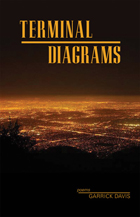
Garrick Davis’s Terminal Diagrams may have been inspired by the illustrated maps in airport lounges, or perhaps they are the blueprints of the Apocalypse, with their subjects and objects representing the bitter fruits of either some future nightmare or the present world. Regardless, their vision is so bleak and unsparing, only a few will be able to savor them. Here, the art of poetry has been mechanized just as the world has been mechanized. Whether his subject is a car accident on the freeways of Los Angeles or the Book of Revelation transmitted by television, Davis’s stanzas conjure a kind of futuristic noir. In poem after poem, he examines the artistic possibilities of the machine, and its alterations of human experience, with a modern spirit that—as Baudelaire defined it—has embraced “the sublimity and monstrousness of something new.”

Winner of the 2023 CAAPP Book Prize from the University of Pittsburgh’s Center for African American Poetry and Poetics and Autumn House Press, Okwudili Nebeolisa’s debut poetry collection serves as an intimate exploration of the relationship between a Nigerian mother and son. Throughout the book, Nebeolisa navigates the guilt of starting a new life in the United States, far away from his home country and from his mother, who is battling cancer.
Depicting tender moments between mother and son, Terminal Maladies highlights how the poet and his family shoulder the responsibility of caregiving together and how Nebeolisa works to bridge the physical and emotional distance between them. He reflects on the reasons behind his Nigerian mother’s withholding, questioning her need to act bravely alongside his own assumed role as her protector.
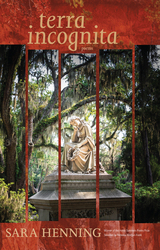
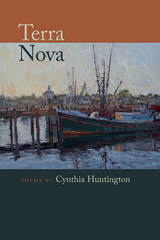
In this bold and ambitious book-length poem, National Book Award finalist Cynthia Huntington explores exile and migration—what it means to lose, seek, and find home in all its iterations—through a polyphonic work, written in multiple voices and evoking the method of Hart Crane’s The Bridge or the Nighttown episode in James Joyce’s Ulysses. Yet it is also a tough and vernacular work, owing as much to Patti Smith and the Clash as it does to High Modernism.
Again and again the work shows us outsiders forced into metaphorical and literal wildernesses, whether in a retelling of the biblical Israelites lost in the desert or in stories from Provincetown, Massachusetts, where the new world struggles into being at the edge of the sea. Yet the voices here, across many times and places, refuse to give in to desolation and despair.
Huntington’s approach is hybrid, oscillating between verse and lyrical prose to create a work that falls somewhere between an epic poem and a collection of lyric essays. Whether chronicling the creation of the world and the first exile from the Judeo-Christian Garden of Eden or imagining the terror and thrill of the first sea voyages, this is electric poetry: challenging, startling, and fulfilling.

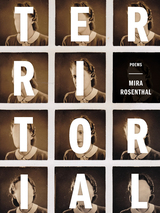
Finalist, 2022 INDIES Book of the Year Award, Poetry
Territorial explores the bargains that women make to stay safe from violence. Set in a landscape of looming ecological ruin, the poems bear witness to the effects of drought on the California chaparral region and delve into difficult personal terrain to reveal patterns of abuse we inflict on the earth and each other. How can we emerge from a devastated landscape into a sense of healing and repair? Using the characteristics of violence—repetition and escalation—the collection connects subjects that range from the dawn of recorded sound to the mapping of myths onto constellations, the ecosystem of a leach pond, and the photographs of Alfred Stieglitz. In tracing the ways narratives of predation imprint onto the body, memory, environment, and future generations, Territorial finds resilience in the powers of language to reshape experience.
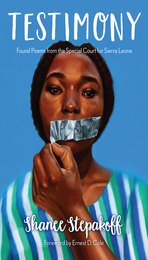
Sierra Leone’s devastating civil war barely caught the attention of Western media, but it raged on for over a decade, bringing misery to millions of people in West Africa from 1991 to 2002. The atrocities committed in this war and the accounts of its survivors were duly recorded by international organizations, but they run the risk of being consigned to dusty historical archives.
Derived from public testimonies at a UN-backed war crimes tribunal in Freetown, this remarkable poetry collection aims to breathe new life into the records of Sierra Leone’s civil war, delicately extracting heartbreaking human stories from the morass of legal jargon. By rendering selected trial transcripts in poetic form, Shanee Stepakoff finds a novel way to communicate not only the suffering of Sierra Leone’s people, but also their courage, dignity, and resilience. Her use of innovative literary techniques helps to ensure that the voices of survivors are not forgotten, but rather heard across the world.
This volume also includes an introduction that explores how the genre of “found poetry” can serve as a uniquely powerful means through which writers may bear witness to atrocity. This book’s unforgettable excavation and shaping of survivor testimonies opens new possibilities for speaking about the unspeakable.


Jack Stillinger's concern is with the words of Keats's texts: “I wish,” he says, “to get rid of the wrong ones and to suggest how to go about constructing texts with a greater proportion of the right ones.” He finds that in the two best modern editions of Keats, one third of the texts have one or more wrong words. Modern editors have sometimes based their texts on inferior holograph, transcript, or printed versions; sometimes combined readings from separate versions; sometimes retained words added by copyists and early editors (who frequently made “improvements” when they thought the poems needed them); and sometimes, of course, introduced independent errors of their own.
The heart of this book is a systematic account of the textual history of each of the 150 poems that can reasonably be assigned to Keats. In each history Stillinger dates the work, as closely as it can be dated; gives the details of first publication; specifies the existing variant readings and their sources; and suggests what might be the basis for a standard text.

Crafted with lines from her late father’s letters, Jennifer Tseng’s Thanks for Letting Us Know You Are Alive is a portrait of an immigrant, a rootless person whose unspoken loss—that of his native geography, family, traditions, language—underlies every word. Though her father’s first language was Mandarin, for more than twenty years he wrote these letters in English, so that she could understand them. Some are riddled with errors, some nearly unintelligible. Lines from his letters appear as titles and are scattered throughout the poems, blending voices of father and daughter. This collection enacts what it means to lose someone and commune with them simultaneously—the paradox of grief and all it gives us.
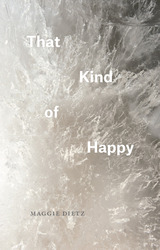
If I slept too long, forgive me.
A north wind quickened the window frames
so the room pitched like a moving train
and the pillow’s whiff of hickory
and shaving soap conjured your body
beside me. So I slept in the berth
as the train chuffed on, unburdened
by waking’s cold water, ignorant
of pain, estrangement, hunger and
the crucial fuel the boiler burned
to keep the minutes’ pistons churning
while I slept. Forgive me.
That Kind of Happy, the long-awaited second collection by award-winning poet Maggie Dietz, explores the sharp, profound tension between a disquieted inner life and quotidian experience. Central to the book are poems that take up two major life events: becoming a mother and losing a father within a short stretch of time. Here, at the intersection of joy and grief, of persistence and attrition, Dietz wrestles with the questions posed by such conflicting experiences, revealing a mind suspicious of quick fixes and dissatisfied with easy answers. The result is a book as anguished as it is distinguished.
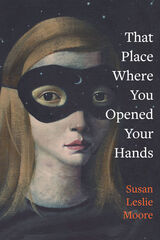

In this book, Shapiro brings his characteristic warmth, humor, and many years as both poet and teacher to bear on questions surrounding two preoccupations: the role of conventions—of literary and social norms—in how we fashion our identities on and off the page, and how suffering both requires and resists self-expression. He sketches affectionate portraits of his early teachers, revisits the deaths of his brother and sister, and examines poems that have helped him navigate troubled times. Integrating storytelling and literary analysis so seamlessly that art and life become extensions of each other, Shapiro embodies in his lively prose the very qualities he celebrates in the poems he loves.
Brimming with wit and insight, this is a book for poets, students and scholars of poetry, teachers of literature, and everyone who cares about the literary arts and how they illuminate our personal and public lives.
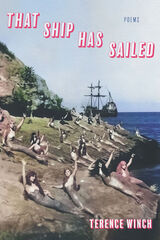
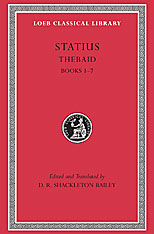
Fraternal strife.
Statius published his Thebaid in the last decade of the first century. This epic recounting the struggle between the two sons of Oedipus for the kingship of Thebes is his masterpiece, a stirring exploration of the passions of civil war. The extant portion of his unfinished Achilleid is strikingly different in tone: this second epic begins as a charming account of Achilles’ life.
Statius was raised in the Greek cultural milieu of the Bay of Naples, and his Greek literary education is reflected in his poetry. The political realities of Rome in the first century are also evident in the Thebaid, in representations of authoritarian power and the drive for domination. Shackleton Bailey’s new edition of the two epics, with a highly skillful translation, addresses a number of puzzles in the text and its interpretation and provides essential information on mythological and other references. Kathleen M. Coleman, Professor of Latin at Harvard University, contributes a survey of recent scholarship on Statius’ epics.
The new Loeb Classical Library edition of Statius is complete in three volumes.
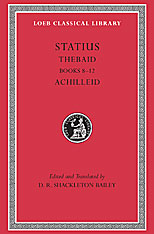
Fraternal strife, and the young Achilles.
Statius published his Thebaid in the last decade of the first century. This epic recounting the struggle between the two sons of Oedipus for the kingship of Thebes is his masterpiece, a stirring exploration of the passions of civil war. The extant portion of his unfinished Achilleid is strikingly different in tone: this second epic begins as a charming account of Achilles’ life.
Statius was raised in the Greek cultural milieu of the Bay of Naples, and his Greek literary education is reflected in his poetry. The political realities of Rome in the first century are also evident in the Thebaid, in representations of authoritarian power and the drive for domination. Shackleton Bailey’s new edition of the two epics, with a highly skillful translation, addresses a number of puzzles in the text and its interpretation and provides essential information on mythological and other references. Kathleen M. Coleman, Professor of Latin at Harvard University, contributes a survey of recent scholarship on Statius’ epics.
The new Loeb Classical Library edition of Statius is complete in three volumes.

A thousand-year-old story of Krishna and his wife Satyabhama retold by the most famous court poet of the Vijayanagara Empire.
Legend has it that the sixteenth-century Telugu poet Nandi Timmana composed Theft of a Tree, or Pārijātāpaharaṇamu, which he based on a popular millennium-old tale, to help the wife of Krishnadevaraya, king of the south Indian Vijayanagara Empire, win back her husband’s affections.
Theft of a Tree recounts how Krishna stole the pārijāta, a wish-granting tree, from the garden of Indra, king of the gods. Krishna does so to please his favorite wife, Satyabhama, who is upset when he gifts his chief queen a single divine flower. After battling Indra, Krishna plants the tree for Satyabhama—but she must perform a rite temporarily relinquishing it and her husband to enjoy endless happiness. The poem’s narrative unity, which was unprecedented in the literary tradition, prefigures the modern Telugu novel.
Theft of a Tree is presented here in the Telugu script alongside the first English translation.

The first English translation of a thousand-year-old story of Krishna and his wife Satyabhama, retold by the most famous court poet of the Vijayanagara Empire.
Legend has it that the sixteenth-century Telugu poet Nandi Timmana composed Theft of a Tree, or Pārijātāpaharaṇamu, to help the wife of Krishnadevaraya, king of the south Indian Vijayanagara Empire, win back her husband’s affections. Timmana based his work on a popular millennium-old Krishna tale.
Theft of a Tree recounts how Krishna stole the wish-granting pārijāta tree from the garden of Indra, king of the gods. Krishna takes the tree to please his favorite wife, Satyabhama, who is upset when he gifts his chief queen a single divine flower. After battling Indra, he plants the pārijāta for Satyabhama—but she must perform a rite temporarily relinquishing it and her husband to enjoy endless happiness.
This is the first English translation of the poem, which prefigures the modern Telugu novel with its unprecedented narrative unity.
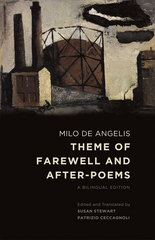
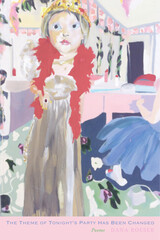
Roeser brings a host of characters into her poems—a Catholic priest raging against the commercialism of Mother's Day, the injured tennis player James Blake, a man struck by lightning, drunk partygoers, an ex-marine, Sylvia Plath's son Nicholas Hughes, a neighbor, travelers encountered in airport terminals, various talk therapists—and lets them speak. She records with high fidelity the nuances of our ordinary exigencies so that the poems become extraordinary arias sung by a husky-voiced diva with coloratura phrasing to die for, "the dark notes" that Lorca famously called the duende. The book is infused with the energy of misfortune, accident, coincidence, luck, grace, panic, hilarity. The characters and narrator, in extremis, speak their truths urgently.
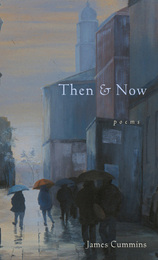
James Cummins’s first book of poems, The Whole Truth, became known throughout much of the poetry world as the “Perry Mason sestinas.” His second book, Portrait in a Spoon, was chosen by Richard Howard for the James Dickey Prize Contemporary Poetry Series.
His latest and most accomplished work is collected in Then and Now, which reflects the same inventiveness and wit evident in his earlier books, with a deepening of tone and spirit. The result is a collection of poems filled with feeling and with Cummins’s signature anguished humor.
If the language of poetry is a way into a hall of mirrors of the self, it can be a way out, too. The voice that emerges in Then and Now is sane, imaginative, bemused, and sly, not only taking responsibility for the character of the writer put fully on display, but ironically and affectionately exploring how this process occurs.
Doing Lunch
You have lunch with a friend.
You put on a false face for him,
because he is your friend.
You want to spare him your
maunderings,
your lies and malfeasance.
But this is just what your friend desires,
because he is your friend.
He wants your face to fall open
in front of him and twitch
like a rabbit hit on the fly.
He says he wants the latest word
from the border region between
narcissism and an inner life.
And laughs.
Shamelessly, you tell him everything,
because he is your friend.

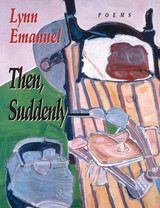
A reader and a writer don their respective roles and embark on the journey of a book. This is their story--ultimately a love story--darkly funny, mournful, testy. It is about a reader who at times presides over the page like a god, and at others follows the leash of the author's voice through the dark streets of the book like a dog, and it is about a writer of determined slipperiness. As we read, we think that each of us is The Reader, the one who knows the Real Story. But the more we think we understand, the more the story moves away from us—all is not what it seems.
This eagerly awaited third volume by the poet whose work The New York Times described as "at once charmed and frightening" is a book of high-spirited subversiveness, a work of argument, seduction, and a relentless devotion to language. Then, Suddenly— bristles with the sound of the author's voice--insistent, vital, hilarious, and iconoclastic--tearing away at the confinement of the page and at the distance between the page and the reader. Emanuel's images are dazzling. She creates a performance that is fearsome and funny in its portrayal of the argument between the work of the text and the world of the body. The Gettsyburg Review has called her a writer of "exquisite craftsmanship" who can "strike from language . . . images chiseled clean as bas-relief." Then, Suddenly— is a book of spectacle and verve, part elegy, part vaudeville.

By illuminating what has been left untold, these writings present the vivid landscape of a mind layering itself over the world, thinking and speaking its way through a myriad of places, objects, and visions. From rooms overlooking Tokyo rivers to Shanghai streets in the thrall of nighttime, Shan throws light on a nation’s quieted crevices, on the distances between the carnal and the eternal, and most pivotally, on the ability of language to elucidate fact with imagination.

The father of pastoral poetry and his Hellenistic heirs.
Theocritus (early third century BC), born in Syracuse and also active on Cos and at Alexandria, was the inventor of the bucolic genre. Like his contemporary Callimachus, Theocritus was a learned poet who followed the aesthetic, developed a generation earlier by Philitas of Cos (LCL 508), of refashioning traditional literary forms in original ways through tightly organized and highly polished work on a small scale (thus the traditional generic title Idylls: “little forms”). Although Theocritus composed in a variety of genres or generic combinations, including encomium, epigram, hymn, mime, and epyllion, he is best known for the poems set in the countryside, mostly dialogues or song-contests, that combine lyric tone with epic meter and the Doric dialect of his native Sicily to create an idealized and evocatively described pastoral landscape, whose lovelorn inhabitants, presided over by the Nymphs, Pan, and Priapus, use song as a natural mode of expression.
The bucolic/pastoral genre was developed by the second and third members of the Greek bucolic canon, Moschus (fl. mid second century BC, also from Syracuse) and Bion (fl. some fifty years later, from Phlossa near Smyrna), and remained vital through Greco-Roman antiquity and into the modern era.
This edition of Theocritus, Moschus, and Bion, together with the so-called “pattern poems” included in the bucolic tradition, replaces the earlier Loeb Classical Library edition by J. M. Edmonds (1912), using the critical texts of Gow (1952) and Gallavotti (1993) as a base and providing a fresh translation with ample annotation.
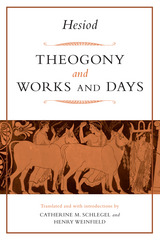
"This Schlegel-Weinfield translation of Hesiod is superbly crafted: compelling, unforgettable poetry to be read aloud with delight and gratitude."
—Allen Mandelbaum, Endowed Kenan Professor of Humanities, Wake Forest University
"This exciting and unique collaboration between a classical philologist and a poet will not just provide insight into archaic Greek society, but also offer something new: the opportunity to experience the richness of Hesiod's style, language, and modes of thought with remarkable fidelity to the ancient Greek. Weinfield and Schlegel make Hesiod sing."
—Carole Newlands, Classics Department, University of Wisconsin
"Schlegel and Weinfield have produced one of the most remarkable of a current resurgence of translations from the classics, allowing the modern world to hear a poet who may have known Homer. Hesiod’s song makes us understand why the Greeks thought a poet could draw dolphins through the seas or raise the walls of Thebes. Weinfield translates by ear and transfers what he hears to the page, resonant fourteeners, a worthy echo of the past."
Catherine Schlegel is Associate Professor of Classics, University of Notre Dame. Henry Weinfield is Professor and Chair of Liberal Studies, University of Notre Dame, and translator of The Collected Poems of Stephane Mallarme.
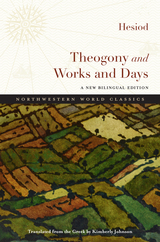

Antiquity’s original didactic poet.
Hesiod describes himself as a Boeotian shepherd who heard the Muses call upon him to sing about the gods. His exact dates are unknown, but he has often been considered a younger contemporary of Homer.
The first volume of this revised Loeb Classical Library edition offers Hesiod’s two extant poems and a generous selection of testimonia regarding his life, works, and reception. In Theogony, Hesiod charts the history of the divine world, narrating the origin of the universe and the rise of the gods, from first beginnings to the triumph of Zeus, and reporting on the progeny of Zeus and of goddesses in union with mortal men. In Works and Days, Hesiod shifts his attention to humanity, delivering moral precepts and practical advice regarding agriculture, navigation, and many other matters; along the way he gives us the myths of Pandora and of the Golden, Silver, and other Races of Men.
The second volume contains The Shield and extant fragments of other poems, including the Catalogue of Women, that were attributed to Hesiod in antiquity. The former provides a Hesiodic counterpoint to the shield of Achilles in the Iliad; the latter presents several legendary episodes organized according to the genealogy of their heroes’ mortal mothers. None of these is now thought to be by Hesiod himself, but all have considerable literary and historical interest.
Glenn W. Most has thoroughly revised his edition to take account of the textual and interpretive scholarship that has appeared since its initial publication.

Hesiod describes himself as a Boeotian shepherd who heard the Muses call upon him to sing about the gods. His exact dates are unknown, but he has often been considered a younger contemporary of Homer. This volume of the new Loeb Classical Library edition offers a general introduction, a fluid translation facing an improved Greek text of Hesiod's two extant poems, and a generous selection of testimonia from a wide variety of ancient sources regarding Hesiod's life, works, and reception.
In Theogony Hesiod charts the history of the divine world, narrating the origin of the universe and the rise of the gods, from first beginnings to the triumph of Zeus, and reporting on the progeny of Zeus and of goddesses in union with mortal men. In Works and Days Hesiod shifts his attention to the world of men, delivering moral precepts and practical advice regarding agriculture, navigation, and many other matters; along the way he gives us the myths of Pandora and of the Golden, Silver, and other Races of Men.
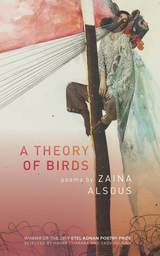
Winner of the 2019 Etel Adnan Poetry Prize
Inside the dodo bird is a forest, Inside the forest
a peach analog, Inside the peach analog a woman, Inside
the woman a lake of funerals
This layering of bird, woman, place, technology, and ceremony, which begins this first full-length collection by Zaina Alsous, mirrors the layering of insights that marks the collection as a whole. The poems in A Theory of Birds draw on inherited memory, historical record, critical theory, alternative geographies, and sharp observation. In them, birds—particularly extinct species—become metaphor for the violences perpetrated on othered bodies under the colonial gaze.
Putting ecological preservation in conversation with Arab racial formation, state vernacular with the chatter of birds, Alsous explores how categorization can be a tool for detachment, domination, and erasure. Stretching their wings toward de-erasure, these poems—their subjects and their logics—refuse to stay put within a single category. This is poetry in support of a decolonized mind.
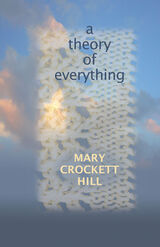
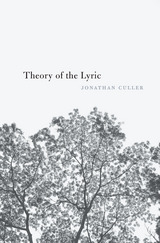
What sort of thing is a lyric poem? An intense expression of subjective experience? The fictive speech of a specifiable persona? Theory of the Lyric reveals the limitations of these two conceptions of the lyric—the older Romantic model and the modern conception that has come to dominate the study of poetry—both of which neglect what is most striking and compelling in the lyric and falsify the long and rich tradition of the lyric in the West. Jonathan Culler explores alternative conceptions offered by this tradition, such as public discourse made authoritative by its rhythmical structures, and he constructs a more capacious model of the lyric that will help readers appreciate its range of possibilities.
“Theory of the Lyric brings Culler’s own earlier, more scattered interventions together with an eclectic selection from others’ work in service to what he identifies as a dominant need of the critical and pedagogical present: turning readers’ attention to lyric poems as verbal events, not fictions of impersonated speech. His fine, nuanced readings of particular poems and kinds of poems are crucial to his arguments. His observations on the workings of aspects of lyric across multiple different structures are the real strength of the book. It is a work of practical criticism that opens speculative vistas for poetics but always returns to poems.”
—Elizabeth Helsinger, Critical Theory


The poems in t/here it is take multiple forms as each section reflects on variations of experience, engaging with the simultaneity of historic and present time while yearning for a future that is beyond what we can envision. In Section I, the poet grapples with ancestral legacy and connection to the natural world. Section II deals with the way one traverses the urban landscape and with various strategies of survival, and Section III recalls the observations and experiences of youth. Through nine linked poems, Section IV complicates the idea of witness under a capitalistic system bent on exploitation and devaluing the sacred human experience. Section V speaks to the lost opportunity of making profound human connections during the race to acquire more material goods. In Section VI, the poems take on the domestic and institutional places that govern our lives. A single poem forms Section VII, mapping the intersection between jazz and emotion. With Section VIII, Anderson pays homage to jazz greats and reflects on the ways that listening can carry one back to moments of growth and lamentation. The two poems that close out the book in Section IX bring the reader to a place of vulnerability, expressing the desire to be able to discern the multiple avenues of one’s journey with awareness.
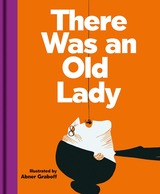
For more than a century, this deceptively simple rhyme has delighted children and parents alike. Its galloping rhythm is perfect for reading out loud, becoming a memory game as the list of animals grows—from fly and spider to bird, cat, dog, and goat. Abner Graboff’s bright and startling illustrations combine beautifully with the original verse to bring this subversive, irreverent tale to life.

A stunning modern translation of a Buddhist classic that is also one of the oldest literary texts in the world written by women.
The Therīgāthā, composed more than two millennia ago, is an anthology of poems in the Pali language by and about the first Buddhist women. These women were therīs, the senior ones, among ordained Buddhist women, and they bore that epithet because of their religious achievements. The poems they left behind are arguably among the most ancient examples of women’s writing in the world and they are unmatched for their quality of personal expression and the extraordinary insight they offer into the lives of women in the ancient Indian past—and indeed, into the lives of women as such.
This new version of the Therīgāthā, based on a careful reassessment of the major editions of the work and printed in the Roman script common for modern editions of Pali texts, offers the most powerful and the most readable translation ever achieved in English.
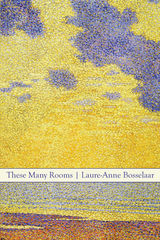
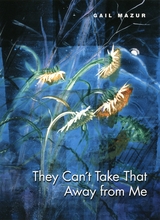
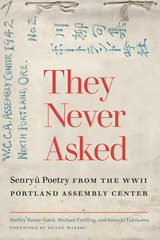
The Japanese American communities in Oregon and southern Washington were relatively small and many of the detainees knew each other; they drew on existing family and community networks to help each other through the long summer, living in inhumane conditions under the constant threat of violence. Several members of Bara Ginsha, a Portland poetry group, decided to continue their work while imprisoned at the center, primarily by writing senryū, a type of Japanese poetry related to haiku.
They Never Asked is a collection of work produced by Bara Ginsha members in the WCCA camp, based on a journal kept by Masaki Kinoshita. The senryū collected here were written by a group of twenty-two poets, who produced hundreds of poems. Individually, the poems reflect the thoughts and feelings the authors experienced while being detained in the center; collectively, they reflect the resilience and resistance of a community denied freedom. Editors Shelley Baker-Gard, Michael Freiling, and Satsuki Takikawa present translations of the poems alongside the originals, supplemented by historical and literary context and a foreword by Duane Watari, Masaki Kinoshita’s grandson.
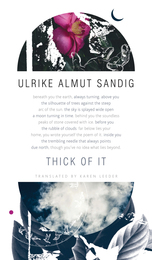
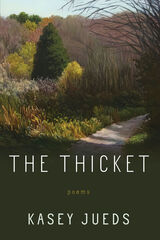
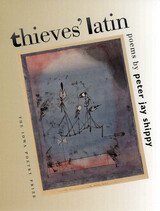
“Ah, writ happens.” Like the con men who rely on thieves' Latin to ply their trade, the poems in Peter Jay Shippy's award-winning collection don't play well with other poems. They are difficult. They rave. They are unsettling and blunt. They crash cars and ride tsunamis and hitch rides on tugs. They also provide a contemporary, ironic, and tender view of America, all the while layering wordplay, cleverness, and sentiment.

"The aim of poetry (and the higher kind of thriller) is to be unexpected and memorable. So a poem about death might treat it in a way that combines the bizarre and the banal: the Other Side as some kind of institution—a creepy hospital, an officious hotel or retirement home. Martha Rhodes takes such an approach in 'Ambassadors to the Dead,' from her abrupt, unsettling, artfully distorted, indelible new book Mother Quiet. Blending the matter-of-fact with the surreal, as a way of comprehending the stunning, final reality, Rhodes is an inheritor of Emily Dickinson's many poems on the same subject."
—Robert Pinsky, Washington Post

THINE’s observational approach draws together ecopoetics with art and myth, turning a skeptical eye toward predictions of both apocalypse and hope. In conversation with artistic renderings of and against the self in the West–Agnes Martin’s grids, Willa Cather’s letters, Walter di Maria’s The Lightning Field–these poems find beauty in the impermanence of land, animals, and people. THINE meditates, with affectionate irony, on what it means to make new lives in the midst of the unknown.
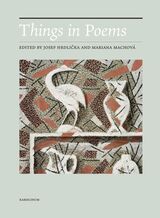
In this volume, fifteen scholars and poets, from Austria, Britain, Czechia, France, Germany, Ireland, Lithuania, and Russia, explore the topic of things and objects in poetry written in a number of different languages and in different eras. The book begins with ancient poetry, then moves on to demonstrate the significance of objects in the Chinese poetic tradition. From there, the focus shifts to things and objects in the poetry of the twentieth and the twenty-first century, examining the work of Czech, Polish, and Russian poets alongside other key figures such as Rilke, Francis Ponge, William Carlos Williams, and Paul Muldoon. Along the way, the reader gets an introduction to key terms and phrases that have been associated with things in the course of poetic history, such as ekphrasis, objective lyricism. and hyperobjects.
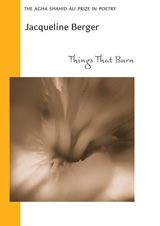
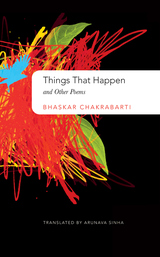
In this first-ever comprehensive translation of Chakrabarti’s work, award-winning translator Arunava Sinha masterfully articulates that clarity of vision, retaining the unique cadence and idioms of the Bengali language. Presenting verses and prose poems from all of Chakrabarti’s life—from his first volume, When Will Winter Come, published in 1971, to his last, The Language of Giraffes, published just before his death in 2005, and collecting several unpublished works as well—Things That Happen and Other Poems introduces the world to a brilliant and universal poetic voice of urban life.

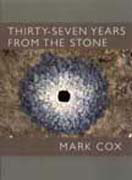
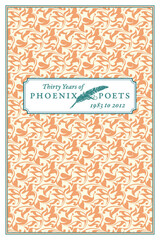

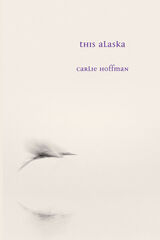
To live in an Alaska of the mind is to map the imagined cartography of winter on all that is physical. To dwell perpetually in a symbolic cold, and to emerge, with grace, unscathed. This book questions what it means to live and love in such a buried season. This Alaska interrogates all that emotional and physical intimacy cannot salvage or keep warm. Death and dreams are at the very center of this book. But life — and all it entails and circles and loses and loves — is at its heart.
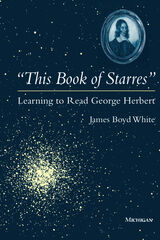
"This Book of Starres" is one of those all-too-rare books in which an author's love of someone's work--in this case, the seventeenth-century English poet George Herbert--leads to a journey of exploration.
Herbert's poetry presents a special set of challenges: It is to the modern ear archaic, difficult in thought and structure, and entirely theological in character. Yet no poet is more deeply admired by those who know him well. "This Book of Starres" is meant to engage the reader in a process of reading by which this verse can be seen to be vivid and alive. It is the record of one person's life-changing involvement with the poetry of George Herbert; in this it is about not only how, but why we read great poetry.
"It is a joy to experience Herbert's poetry in the company of James Boyd White, whose affinity for the work is always convincing and seems at times preternatural. 'This Book of Starres' is a necessary pleasure: all readers of poetry, whether expert or inexpert, will find it enriching." --Alice Fulton
". . . both a delight to read, and one of the most instructive exercises in literature and theology I have read for a long time. . . . Herbert emerges as one of the greatest, a writer to test and change the imagination, the very way in which we think about the world and that which is beyond it." --Literature and Theology
James Boyd White is Hart Wright Professor of Law, Professor of English, and Adjunct Professor of Classical Studies, University of Michigan.
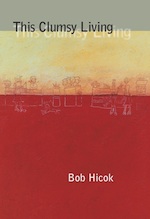
“Few others in contemporary poetry are so brilliantly able to combine wit and weight, to charge the language so it virtually glows in the dark. Hicok's poems just plain rock. They rock because they are gorgeous. They rock because they are sad and turn on the radio. They dance our 'clumsy living' with our shadows and our isolations to a music that always, always remembers the original delight in which 'the feel of things, if [we] cherish, helps [us] live / more like a minute than a clock.'”--Beckian Fritz Goldberg
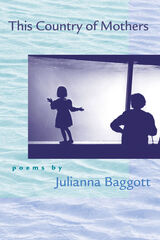
A mosaic of memories, the poems of This Country of Mothers recollect Julianna Baggott’s experiences as both mother and daughter. With wit, compassion, aggression, and anxiety, Baggott examines her maternal history. She recalls moments of creation and destruction in her life, times of elation and of desperation that mold her as both a woman and a poet. This affecting study of motherhood is framed in issues of Catholicism and of poetry itself, challenging and espousing the roles of both. Throughout her poems, Baggott’s personal experiences embrace universal themes to birth poems in a language and style that is both powerfully feminine and accessibly human.

Through a twist of fate that the author of Labyrinths himself would have relished, these lost lectures given in English at Harvard in 1967–1968 by Jorge Luis Borges return to us now, a recovered tale of a life-long love affair with literature and the English language. Transcribed from tapes only recently discovered, This Craft of Verse captures the cadences, candor, wit, and remarkable erudition of one of the most extraordinary and enduring literary voices of the twentieth century. In its wide-ranging commentary and exquisite insights, the book stands as a deeply personal yet far-reaching introduction to the pleasures of the word, and as a first-hand testimony to the life of literature.
Though his avowed topic is poetry, Borges explores subjects ranging from prose forms (especially the novel), literary history, and translation theory to philosophical aspects of literature in particular and communication in general. Probably the best-read citizen of the globe in his day, he draws on a wealth of examples from literature in modern and medieval English, Spanish, French, Italian, German, Greek, Latin, Arabic, Hebrew, and Chinese, speaking with characteristic eloquence on Plato, the Norse kenningar, Byron, Poe, Chesterton, Joyce, and Frost, as well as on translations of Homer, the Bible, and the Rubáiyát of Omar Khayyám.
Whether discussing metaphor, epic poetry, the origins of verse, poetic meaning, or his own “poetic creed,” Borges gives a performance as entertaining as it is intellectually engaging. A lesson in the love of literature and in the making of a unique literary sensibility, this is a sustained encounter with one of the writers by whom the twentieth century will be long remembered.

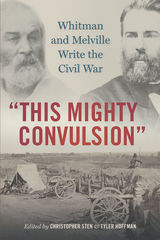
This is the first book exclusively devoted to the Civil War writings of Walt Whitman and Herman Melville, arguably the most important poets of the war. The essays brought together in this volume add significantly to recent critical appreciation of the skill and sophistication of these poets; growing recognition of the complexity of their views of the war; and heightened appreciation for the anxieties they harbored about its aftermath. Both in the ways they come together and seem mutually influenced, and in the ways they disagree, Whitman and Melville grapple with the casualties, complications, and anxieties of the war while highlighting its irresolution. This collection makes clear that rather than simply and straightforwardly memorializing the events of the war, the poetry of Whitman and Melville weighs carefully all sorts of vexing questions and considerations, even as it engages a cultural politics that is never pat.
Contributors: Kyle Barton, Peter Bellis, Adam Bradford, Jonathan A. Cook, Ian Faith, Ed Folsom, Timothy Marr, Cody Marrs, Christopher Ohge, Vanessa Steinroetter, Sarah L. Thwaites, Brian Yothers

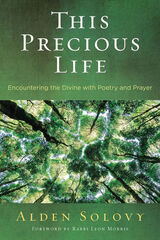
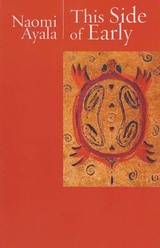
“HOLE”
One morning
they dig up the sidewalk and leave.
No sign of the truck—only the large,
dark shadow digging and digging,
piling up sludge with a hand shovel
beside the only tree.
Two o’clock I come by
and he’s slumbering in the grass beside rat holes.
Three and he’s stretched across a jagged stonewall,
folded hands tucked beneath one ear—
a beautiful young boy smiling,
not the heavy, large shadow who can’t breathe.
Four-thirty and the August heat
takes one down here.
He’s pulled up an elbow joint
some three feet round.
At seven I head home for the night,
pass the fresh gravel mound,
a soft footprint near the manhole
like the “x” abuelo would place beside his name
all the years he couldn’t write.
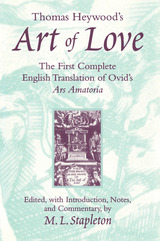
The present edition represents the first instance in which the translation has been edited in a scholarly manner. Besides a full Introduction that accounts for the history of Loues Schoole, Ovid in the English Renaissance, and the editorial method, each of the three books of the poem includes a Commentary that provides cross-references within the text; glosses for unusual, archaic, or regional forms peculiar to Heywood's English; annotations from sourcebooks that Heywood used to identify or understand characters from classical history, literature, and mythology; and explanations for any emendations the editor deemed necessary. In his efforts to make the Ars a seventeenth-century poem, Heywood contemporizes Ovid's references to dress, behavior, courtship, marriage, games, theater, agriculture, horsemanship, war, literature --all of which the Commentary explains at great length.
Loues Schoole will find readership in these areas: early modern history, literature, and culture; classical studies; Renaissance drama; the history of sexuality; and translation theory.
M. L. Stapleton is Associate Professor of English and Philosophy, Stephen F. Austin State University.
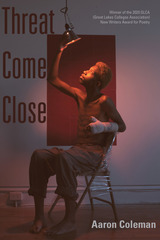
READERS
Browse our collection.
PUBLISHERS
See BiblioVault's publisher services.
STUDENT SERVICES
Files for college accessibility offices.
UChicago Accessibility Resources
home | accessibility | search | about | contact us
BiblioVault ® 2001 - 2024
The University of Chicago Press









